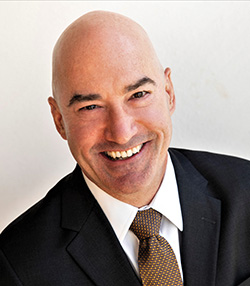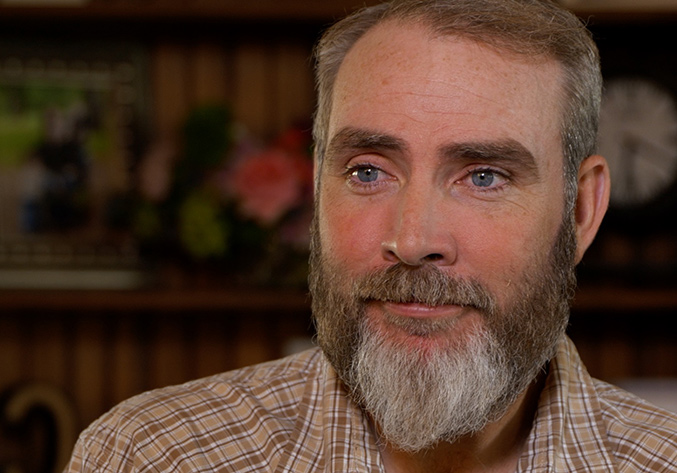FREE CONSULTATION: 214.522.9404

Post-traumatic stress disorder (PTSD) in Dallas, TX, is a mental health condition triggered by witnessing or experiencing a terrifying event. The symptoms of post-traumatic stress disorder can manifest in several different ways. Many individuals with PTSD have nightmares and insomnia, resort to self-harm or substance abuse, or find it difficult to have healthy relationships with their family and friends or get their work done, among other things.
If you were involved in an accident in Dallas and were subsequently diagnosed with PTSD, a Dallas PTSD lawyer at Crain Brogdon, LLP is ready to help. If you have a valid case, we will fight to obtain maximum compensation from the person(s) responsible for causing your accident. That way, you will have the opportunity to regain control over your life.
Why Choose Us
The Dallas PTSD lawyers at Crain Brogdon, LLP are passionate about helping our clients with their cases. Compassionate, tenacious, and experienced, our lawyers have won over 355 million for our clients since 2001. Moreover, we offer informed legal advice and work around the clock to fight for your rights. And we’ll settle for nothing less than the results you deserve.
When you’re suffering from post-traumatic stress disorder (PTSD) that was brought on due to someone else’s irresponsible or negligent actions, you can hold them accountable when you contact a PTSD lawyer in Dallas.
This is the outstanding trajectory of our main lawyers:
- Quentin Brogdon: Quentin has over 30 years of expertise and experience in personal injury trial law. He focuses on wrongful death, truck accidents, car accidents, defective products, premises liability, dram shop, and civil liability for criminal acts. Quentin is board certified in civil trial advocacy and personal injury trial law. He has won many awards and honors, including:
- American College of Trial Lawyers, Fellow
- Best Lawyers in Dallas, D Magazine
- Thurgood Marshall “Fighting for Justice” Award — Association of Plaintiff Interstate Trucking Lawyers of America
- 500 Plaintiffs’ Consumer Lawyers in America, Lawdragon Magazine.
- Robert D. Crain: A nationally renowned personal injury attorney, Robert has been in lists like U.S. News’ Best Lawyers in America. Rob is also AV® Rated by Martindale-Hubbell, which means fellow legal professionals and attorneys have rated him highly for his legal skill and ethical practice. His main practice areas are personal injury, wrongful death, product defects, and civil law plaintiff cases.
We serve clients throughout Dallas, Tarrant, and Collin counties. Call 24/7 at (214) 522-9404 for a free consultation with a PTSD lawyer.
Accidents That Can Cause Post-Traumatic Stress Disorder
In theory, any traumatic experience you go through opens the possibility that you will suffer from PTSD. Many different types of accidents can potentially cause PTSD, including:
- Motor vehicle accidents
- Dog attacks and maulings
- Work accidents
- Hydrofracking accidents
- Premises liability cases
- Slip-and-falls.
Not every accident type that causes PTSD is listed here; there are many others that can trigger PTSD. If you were involved in an accident not listed above, reach out to our firm to determine whether we can help you to secure compensation for your damages.
Can Premises Liability Cases Cause PTSD?
Yes. As mentioned above, premises liability cases can potentially cause PTSD. Premises liability accidents happen when you suffer an injury on someone else’s property. Examples of PTSD-inducing premises liability cases include:
- Slipping and falling while visiting a friend’s apartment
- Breaking bones while using a swimming pool
- Falling from a tree on someone else’s property
- Being bitten by a dog while on someone else’s property.
Symptoms of PTSD
If you’re unsure whether you have PTSD, here are the four types of PTSD symptoms. Note that PTSD symptoms can change over time. You may have more PTSD symptoms when stressed or reminded of the event that triggered the condition.
Intrusive Memories
Intrusive memories may include:
- Recurring, unwanted memories of the traumatic event
- Flashbacks
- Upsetting nightmares or dreams about the traumatic event
- Severe physical reactions or emotional distress to something that reminds you of the traumatic event.
Avoidance
Symptoms of avoidance usually include:
- Avoiding or trying to avoid talking or thinking about the traumatic event
- Avoiding people, activities, or places that remind you of the traumatic event.
Negative Changes in Mood and Thinking
Symptoms of negative changes in mood and thinking can include:
- Hopelessness about the future
- Negative thoughts about yourself and others
- Difficulty maintaining close friendships and relationships
- Memory problems
- Lack of interest in activities and hobbies you once enjoyed
- Feeling detached from friends and family
- Feeling emotionally numb
- Difficult experiencing and expressing positive emotions.
Changes in Physical and Emotional Reactions
Finally, symptoms of changes in physical and emotional reactions include:
- Always anticipating danger
- Being easily frightened or startled
- Trouble sleeping
- Irritability, aggressive behavior, and angry outbursts
- Self-destructive behavior, such as driving too fast or consuming too much alcohol
- Overpowering shame or guilt.
Traumatic Brain Injuries and PTSD
Traumatic brain injuries (TBIs) and PTSD are both life-altering conditions. They also often coexist since traumatic incidents often cause TBIs. However, they are otherwise unique. Here’s a breakdown of the main differences between TBI and PTSD symptoms:
Memory
TBI victims often present periods of amnesia for what went on just before or after the injury occurred. In contrast, someone with PTSD is often plagued and haunted by unwanted intrusive memories and thoughts of the event.
Isolation
Survivors of TBI often have a lot of support early on. However, loved ones often call less over time, leading to social isolation.
PTSD sufferers also experience isolation, but it is usually self-imposed. For many, PTSD makes it hard to interact with people.
Sleep
People with TBI commonly experience sleep disorders. As such, they may have difficulties falling asleep and staying asleep.
Similarly, people with PTSD often struggle to sleep. However, their sleeplessness isn’t the result of a brain injury — rather, nightmares are keeping them from falling and staying asleep.
Emotions
Survivors of TBIs often experience unpredictable emotions due to brain damage. As a result, they may unexpectedly burst into laughter or tears for no apparent reason.
In contrast, survivors of PTSD feel emotionally numb. They often find it difficult to feel and express positive emotions, creating distance and conflicts with partners, spouses, and children.
How Is PTSD Diagnosed?
Healthcare professionals usually diagnose PTSD by:
- Performing a physical exam to spot the root of your symptoms
- Performing a psychological evaluation, including a discussion of your symptoms and the event(s) that may have triggered the symptoms
- Using the criteria in the Diagnostic and Statistical Manual of Mental Disorders (DSM-5), the most recent update to the Diagnostic and Statistical Manual of Mental Disorders, the diagnostic and taxonomic tool published by the American Psychiatric Association.
How We Can Help
If you or a loved one has PTSD, a Dallas PTSD lawyer can help you by:
Determining Whether You Have a Claim
Your lawyer will analyze your case to see if you can prove that a specific incident or accident caused your PTSD.
Gathering and Preserving Evidence
Once your attorney has determined that you have a valid case, they will start gathering and preserving evidence. Specifically, they will gather and preserve:
- Photos and videos of the accident or incident that triggered your PTSD and your injuries (if any)
- Physical evidence of the event that triggered your PTSD, such as torn clothing and broken car parts
- Expert testimony from psychiatrists and psychologists that have diagnosed and treated your PTSD.
Filing Paperwork on and Ahead of Time
Time is of the essence in Texas. Generally speaking, if you don’t file your PTSD personal injury lawsuit within two years of the accident that caused your PTSD, you will probably lose your chance to pursue compensation. A skilled Dallas PTSD lawyer can help you draft, edit, and file paperwork on and ahead of time so you can get the justice you deserve.
Negotiating with Insurance Companies and Other Parties
Besides helping you file paperwork on and ahead of time, a Dallas PTSD attorney can also help you negotiate with other parties, such as insurance companies.
Remember, insurance companies don’t have your best interests at heart — they want you to settle for a lower amount, so they don’t have to pay as much. Accordingly, you should never talk about your case with them. If and when they call, just direct them to your personal injury lawyer. You can then focus on recovering and getting your life back together.
Representing You in Court
Finally, if you can’t reach a reasonable settlement, a skilled Dallas PTSD lawyer can fight for your rights in court. The right personal injury lawyer knows the Dallas court system like the back of their hand, so they will use their knowledge and experience to maximize the compensation you deserve.
Losses You May Be Able to Recover for PTSD
When you file your claim in civil court against the at-fault party, you will be seeking full repayment of the damages you have endured. Because PTSD can influence so many areas of your life, you should be sure to describe every way you’ve been impacted to your attorney so these ways can be accounted for when calculating what your claim is worth.
Some of the most common types of damages accident survivors look to recover are:
- Economic or special damages: compensate for objectively verifiable losses like lost wages, damage to your earning capacity, coverage of your medical expenses, replacement or repair costs, and loss of business opportunities.
- Non-economic or general damages: compensate for non-monetary and subjective losses like pain and suffering, emotional distress, loss of enjoyment of life, inconvenience, and loss of companionship and love, among other things.
- Punitive damages: are awarded to punish the person(s) responsible for your PTSD. Courts also award these damages to deter reckless or intentional actions or behavior motivated by malice. Punitive damages are not non-economic or economic damages since they do not compensate you for any loss.
Your PTSD lawyer in Dallas will be responsible for quantifying your damages. This way, you can be sure that you will be awarded a sum of money that can help you get the treatment you need to put your accident and perhaps your PTSD in the past.
Frequently Asked Questions
Here are our clients’ most frequently asked questions about PTSD:
PTSD and TBIs often coexist since traumatic incidents often cause TBIs, so you may have both. To learn more about the condition(s) you may have, contact a medical professional for an accurate diagnosis. Your lawyer can later use these medical reports and receipts to defend your case in court.
Anyone can get PTSD. Although PTSD is typically associated with war vets and sexual and physical assault survivors and accidents, not everyone with PTSD has experienced a dangerous event. Some people develop the condition after witnessing a loved one get hurt. The unexpected death of a family member or friend can also trigger PTSD.
PTSD symptoms often appear soon after trauma. Most of the time, these symptoms go away within the first few weeks and months following the trauma. However, the symptoms may last for many years in certain cases, especially if the PTSD is left untreated.
Many factors determine whether someone gets PTSD. Risk factors make it more likely for someone to develop PTSD, while other factors, known as resilience factors, may reduce the risk of developing PTSD.
Examples of PTSD risk factors include:
- Living through dangerous traumas and events
- Witnessing people get hurt or killed
- Having a history of mental illness
- Having little to no social support after the event
- Dealing with extreme stress after the event, such as the loss of a job or loved one
Examples of PTSD resilience factors include:
- Having a strong support system
- Feeling confident about one’s actions in the face of danger
- Being able to respond and act effectively despite feeling afraid
- Developing and strengthening healthy coping mechanisms
Consult with a Dallas PTSD Lawyer
PTSD can be debilitating and life changing. However, you don’t have to endure the effects of PTSD alone. When you choose to work with a Dallas PTSD lawyer at Crain Brogdon, LLP, you will have a team of highly trained attorneys by your side who can help you obtain the justice you’re entitled to.
If you’re ready to schedule your free claim evaluation today, you can give our office a call at 214-522-9404 or complete a brief contact form.

Attorney Quentin Brogdon
Quentin Brogdon has over thirty years of experience and expertise in the field of personal injury trial law. He is board certified in both personal injury trial law and civil trial advocacy. Quentin has received an AV rating from Martindale-Hubbell, the highest possible rating. This rating reflects an attorney’s ethics and abilities according to reviews from fellow attorneys. [ Attorney Bio ]






